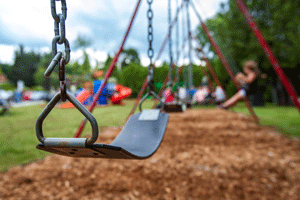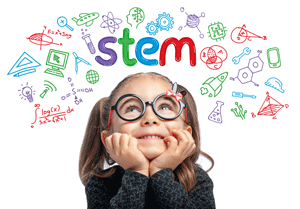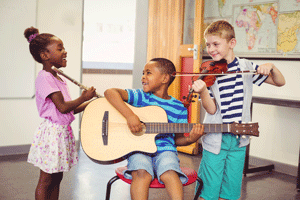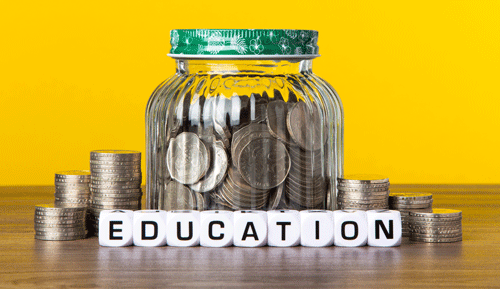Let’s face it, managing an elementary school budget is no small task, but finding yourself with a surplus at the end of the fiscal year is a cause for excitement. A budget surplus reflects effective financial management that deserves congratulations. It also opens up opportunities to further support your students, teachers, and the wider school community. The big question is, how do you best utilize these extra funds?
Strategic spending of surplus funds can significantly improve your school environment, support learning, and enhance experiences for everyone involved. Below, we explore ten impactful ways to use a budget surplus effectively.
Facility Improvements
Investing in your elementary school’s infrastructure directly benefits both students and staff by creating a more engaging and secure learning environment.
Upgrade Classrooms
Consider upgrading classroom furniture, adding interactive technology like smart boards, or increasing access to supplies that make learning more dynamic. Comfortable desks and chairs or resources like STEM kits can transform a classroom into an inspiring learning hub.

Revamp Playgrounds and Outdoor Spaces
Outdoor areas are crucial for student’s physical activity and social development. Use your funds to install new playground equipment, add outdoor seating, or even create an outdoor learning space. These enhancements promote active, outdoor education while boosting morale.
Enhance Safety Measures
Safety is always a top priority for elementary schools. Consider upgrading entry systems, improving emergency preparedness kits, or installing additional surveillance cameras. These measures offer peace of mind for teachers, students, and parents alike.
Technology and Educational Tools
The digital transformation of elementary school education is well underway, and investing in technology can prepare students for the future.
New Devices
Equip your elementary school classrooms with modern laptops, tablets, or interactive whiteboards. These tools provide innovative opportunities for digital learning and allow students to stay ahead in today’s tech-driven world.
Software and Subscriptions
Support your elementary school teachers and students with top-tier educational software and online learning platforms. Tools like learning management systems or subscriptions or creative design programs can enhance instruction and collaboration.

STEM Resources
Promote hands-on learning by investing in STEM kits, robotics equipment, or maker space tools. These resources encourage curiosity and creativity while preparing students for careers in science, technology, engineering, and mathematics. Stocking up on STEM or STEAM awards, like lapel pins, is a great way to encourage your students.
Professional Development
Teacher Training
Use some of your surplus to fund workshops, conferences, or online courses to help teachers stay updated on the latest practices in education. A well-trained teacher can make all the difference in student success.

Collaborative Learning
Provide structured planning time for teachers to collaborate on curriculum development or instructional strategies. Schedule a special day or two for this, and use some of your surplus to create supportive or marketing material.
Student Support Services
Elementary school students thrive when they feel supported emotionally, mentally, and academically.
Counseling and Mental Health Programs
Allocate some budget surplus funds for mental health counselors or programs that focus on your students’ well-being. Expanding these resources can create a nurturing environment where all of your elementary school students feel valued and safe.

Special Education Resources
Enhance your special education programs by equipping classrooms with tailored learning materials and hiring additional staff if needed. Ensuring inclusivity is vital for every student’s success.
Extracurricular and Enrichment Programs
Foster creativity and engagement beyond the elementary school classroom by funding extracurricular programs.
Introduce or Expand Clubs
Support elementary school student interests by establishing new clubs or enhancing existing ones. Options like art programs, debate teams, or coding clubs provide opportunities for students to explore their passions. Don’t forget to order support awards and incentives, like pins, dog tags, and certificates.

Organize Field Trips
Provide students with rich, real-world learning experiences through field trips to museums, historical landmarks, or scientific centers. Covering transportation and entry fees ensures accessibility for all students. Invest some funds in products for Field Trips, too, like Wristbands, Phone Bags, or Fanny Packs.
Library and Literacy Initiatives
A well-stocked library and engaging literacy programs can spark a lifelong love of reading.
Modernize the Library
Upgrade your elementary school library with new books, digital resources, and comfortable seating. Creating a welcoming space for student reading and study reinforces their academic growth.

Reading Incentives
Support literacy programs that reward young students with incentives, like bookmarks or certificates. Bringing in guest authors or hosting book fairs can also inspire excitement for reading.
Community and Family Engagement
Strengthening school-family relationships is essential for holistic student success.
Family-Oriented Events
Host family workshops or events, such as STEM nights, Movie Night, cultural celebrations, or parent-teacher coffee mornings. Strengthening this connection positively impacts student achievement.

Build Community Partnerships
Collaborate with local businesses or organizations for sponsorships, school supplies, and additional resources. These partnerships can introduce unique opportunities that would otherwise not be possible.
Sustainability Projects
Teaching students about sustainability while improving your elementary school’s environmental footprint makes a positive impact. Use funds to install solar panels, start a recycling program, or create a school garden. These projects not only teach little kids about environmental responsibility but also reduce operational costs in the long term.

Classroom Supplies and Materials
Sometimes, the simplest investments have the most impact. Provide teachers with additional classroom supplies (folders, notebooks, pens) or materials to enrich learning activities. Items like whiteboards, craft materials, or science tools make lessons hands-on and impactful.

Support the arts in your elementary school by buying new instruments, performance equipment, or specialized supplies. These programs help develop well-rounded students and foster creativity.
Emergency Funds
Preparation for the unexpected is key to financial security. Set aside a portion of your surplus to address unforeseen costs or emergencies. Whether it’s covering repairs after a storm or purchasing supplies for mid-year enrollment spikes, having a buffer ensures smooth operations.

Make the Most of Your Budget Surplus
By strategically leveraging any surplus funds, elementary school principals or administrators can invest in meaningful initiatives that benefit students, teachers, and the broader community. When budgets are stretched thin, every dollar matters—but with extra funds, the possibilities are immense. Your next step? Visit It’s Elementary to find classroom supplies, mascot costumes, student incentives, decorations for your school store, and everything else your school needs. Maximize your budget surplus and create a thriving, vibrant school environment for all.

